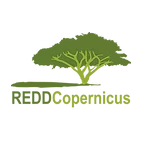Research and Infrastructure Gaps
This task focuses on an identification and prioritisation of the main research topics of EO Forest Monitoring in topical dry and humid forests as well as for Sustainable Forest Management in Europe. These research topics are assessed in terms of monitoring at different scales from global to local levels, and include thematic topics such as sustainable logging, the detection of burned areas, and the assessment of forest biomass and health. Furthermore, the main infrastructure and space component gaps for the provision of operational FM Services are identified and then prioritised.
The results feed into the planned Copernicus Space Component (CSC) Evolution. The Commission has recommended that the CSC evolution is based on user requirements as well as stakeholder workshops which were initiated in 2017 and are planned to be continued in the coming years.
REDDCopernicus coordinates with the organisations/ companies implementing the User uptake and CSC evolution Workshops in order to integrate the findings of all the Project activities in a meaningful manner. The Project will therefore liaise with the Copernicus User Uptake programme for 2019 on various joint activities to ensure that the Copernicus Service Evolution envisaged for the Core and Downstream services are included in the feedback to the Commission and ESA (as part of the CSC).
With JRC leading the Copernicus Global Land Monitoring component and WU being involved in the implementation, the Consortium can ensure that service evolution topics are identified for the Copernicus Space Component.
Work Packages
The work is organised in three Work Packages:
- WP 10 – Research Priorities for Copernicus REDD+ Operationality (Dry and Humid Tropics)
- WP 11 – Research Priorities for European SFM
- WP 12 – Infrastructure Developments for the Space and Ground Component.
